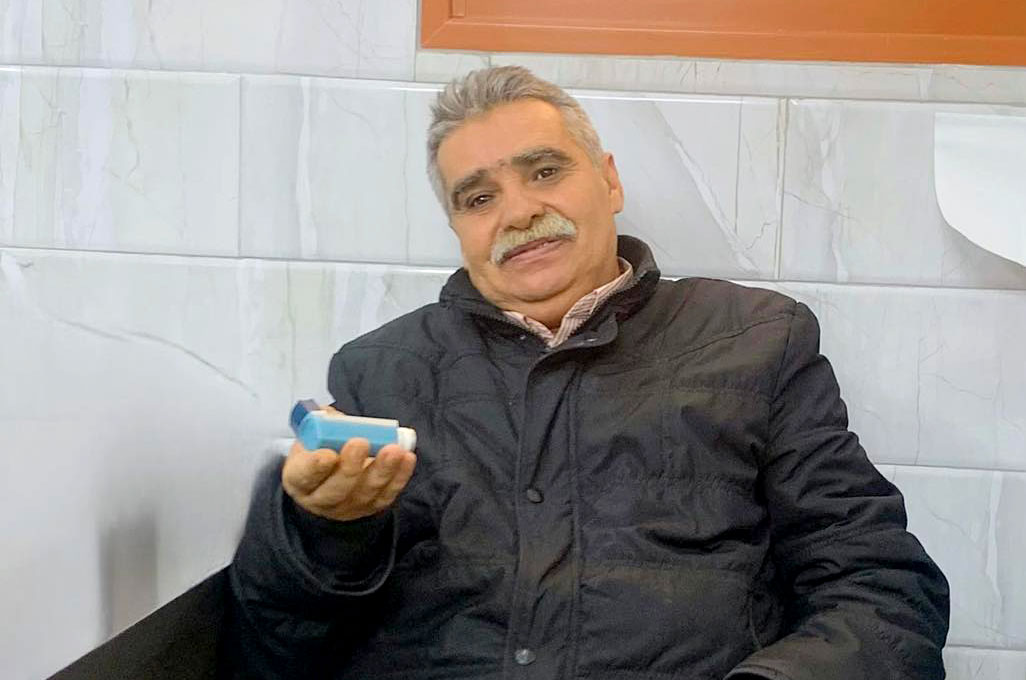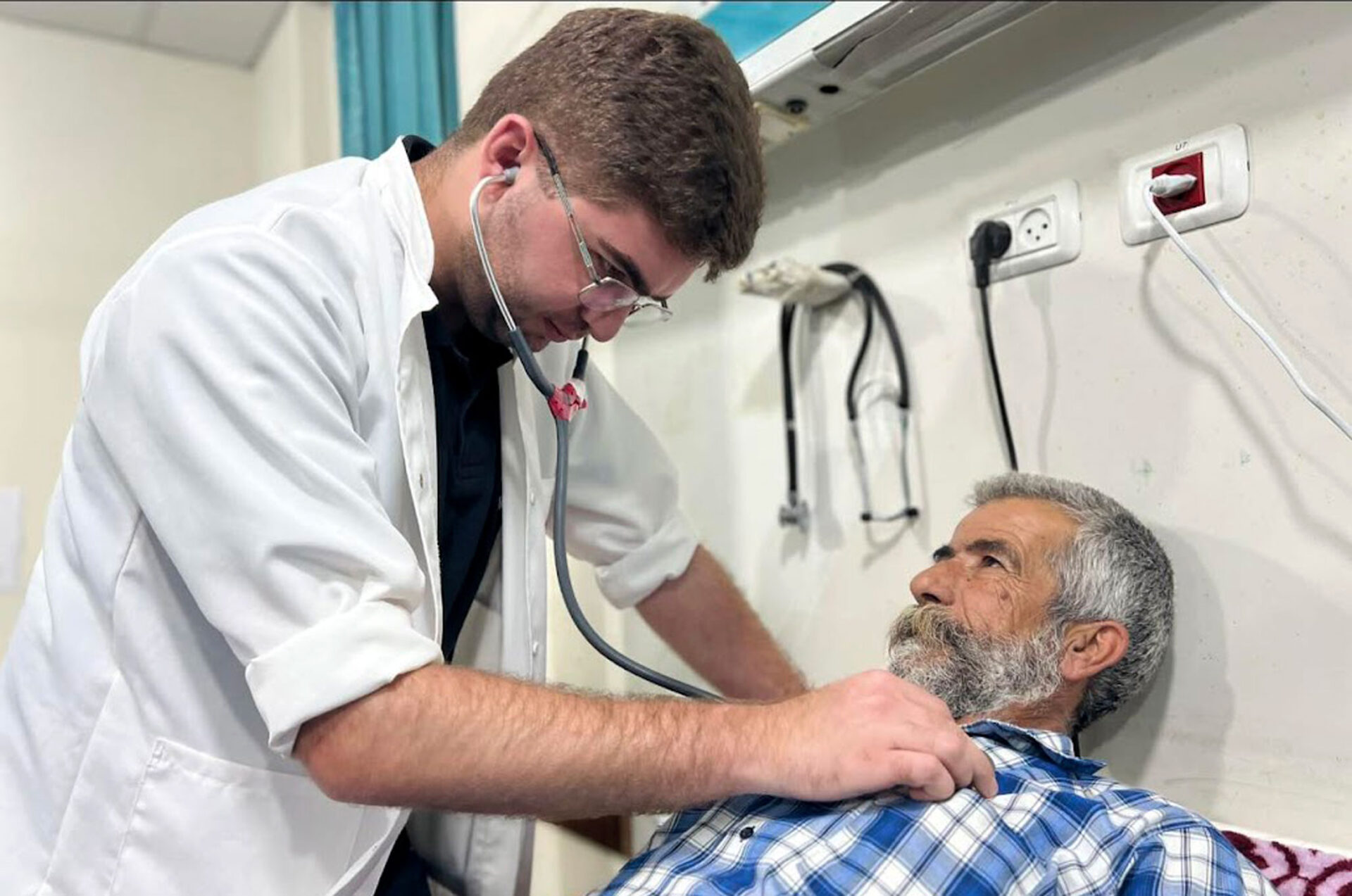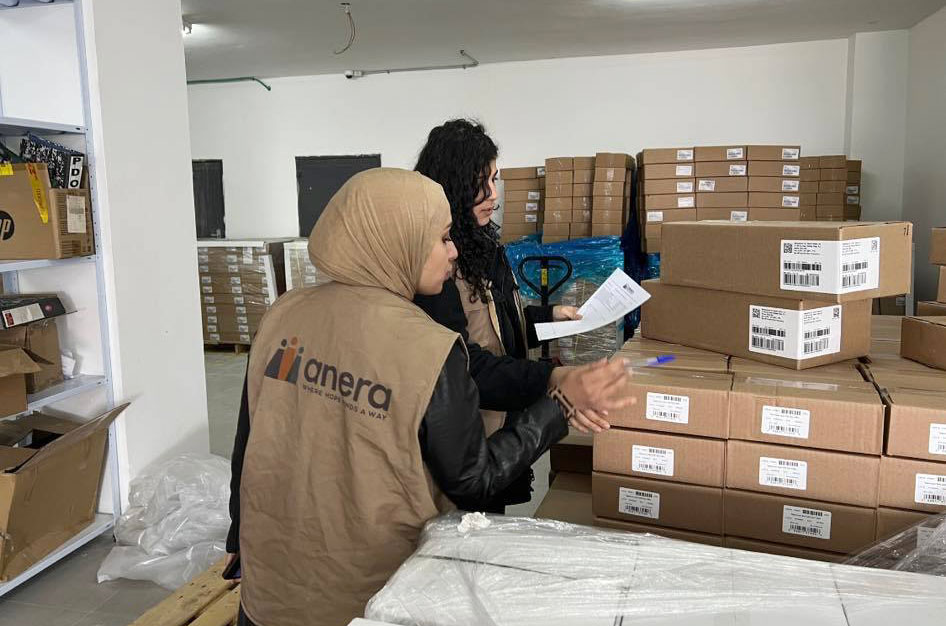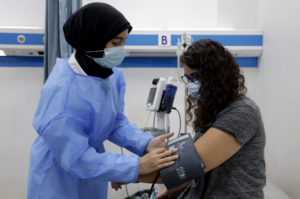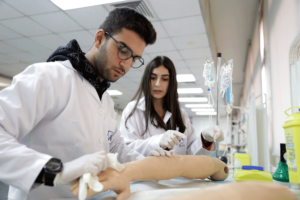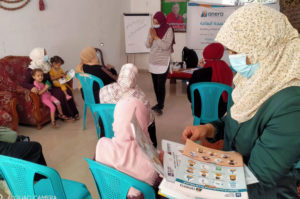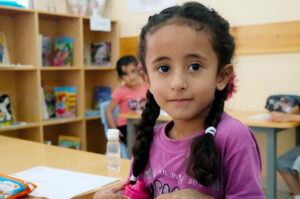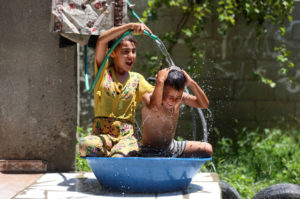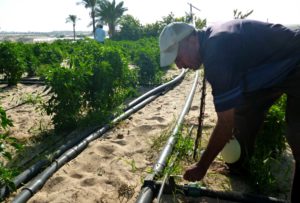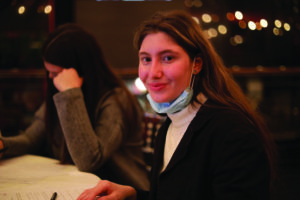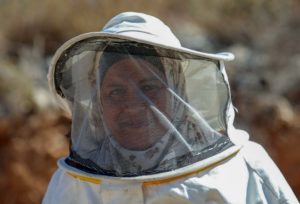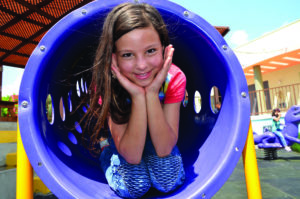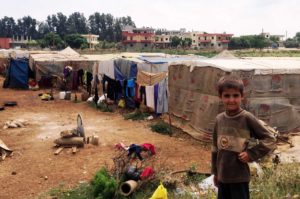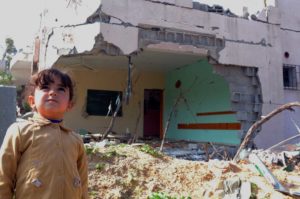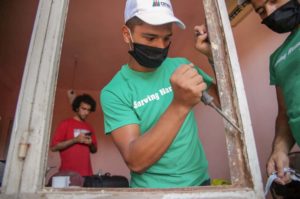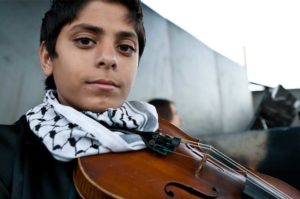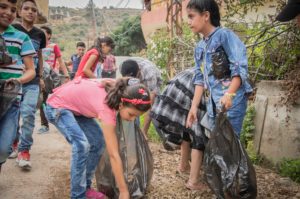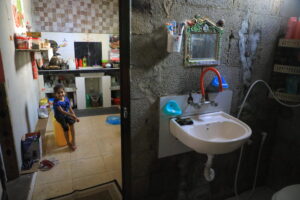A group of concerned Americans and U.S. charities created Anera in 1968. Their mission: to get relief to Palestinians in the West Bank displaced by the 1967 Arab-Israeli War. Today, walls, checkpoints and land and building restrictions across the West Bank hinder the economy and limit Palestinians' access to land and water.
How to Help Palestinians in the West Bank
With your support, Anera helps West Bank communities through access to education, clean water, employment and community infrastructure. Your contribution will help Anera work directly with Palestinian communities identify projects that will bring long-lasting and meaningful change. Learn more about the use of your gift by visiting our FAQ page, then donate today to improve Palestinian lives in the West Bank.
What Happens When You Donate To West Bank Palestinians
When you donate to Anera, you help West Bank Palestinians improve their communities. You contribute to projects that help farmers make smart use of scarce resources and deliver goods to consumers. Your donation enables Palestinians to install water networks that bring water to families' homes. Gifts to Anera from people like you help Palestinians gain employment and make a difference in their communities. Our focus areas in the West Bank include:
- Agriculture: Your donations helped West Bank Palestinians set up Palestine's first large-scale facility for wastewater reuse for irrigation.
- Medicine: Medications supplied through your gifts help Palestinians treat illnesses, injuries and chronic conditions.
- Community: Initiatives such as Anera's Women Can program will use your donation to help West Bank Palestinians start businesses and find employment.
- Education: Your gift will increase access to education for Palestinians of all ages, including refugees seeking job skills training.
- Water: West Bank communities will repair and expand their water networks using the resources provided through your donation.
- Emergency aid: During conflicts and natural disasters, your donation will help us deliver supplies and support to West Bank Palestinians.
WEST BANK STORIES
Our Impact
Learn About Anera's Deep Roots in West Bank
Choose a governorate and click to learn more about Anera's work in that area.
Tulkarem
Current Projects
- Delivering medicines to the Palestine Red Crescent Society of Tulkarem
Recent Projects
- Constructed six metal reservoirs on farms in Thinnabeh
- Renovated the community park in Zeita
- Built a new three-story girls' school in Qaffin
Learn more about our long history and work in Tulkarem.
Ramallah
Current Projects
- Installing a wastewater reuse network in Ramallah
- Delivering medicines to the Treatment and Rehabilitation Center for Victims of Torture
Recent Projects
- Built new preschools in Qibya and Ni'lin
- Constructed a reservoir and water network in Bil'in
- Installed six new parks in Ramallah and nearby villages
Learn more about our long history and work in Ramallah.
Hebron
Current Projects
- Building a new preschool in As Sammu
- Delivering medicines to four Hebron area Palestine Red Crescent Societies
Recent Projects
- Connected five villages near Yatta to a water network
- Added a floor to the Hatta co-ed elementary school
- Built a new preschool in Al Majd
Learn more about our long history and work in Hebron.
Life for Palestinians in the West Bank
In the 1990s, the West Bank separated into three sectors — Area A, Area B and Area C. Area C, which Israel administers, covers over 60 percent of the West Bank. An estimated 300,000 Palestinians live in 532 residential areas located partially or fully in Area C, along with some 400,000 Israeli settlers residing in approximately 230 settlements.
During their daily lives, Palestinians in the West Bank must navigate the walls and checkpoints dividing these three territories.
Agriculture lies at the heart of Palestinian livelihood, but divided land makes it difficult for farmers to grow and market their harvests. Farmers cannot access nearly one-fifth of available farmland in the West Bank. Because of this limited growing space, half of all West Bank farms have less than 2.5 acres. Transportation delays due to divided land also impede efficient farming.
Palestinians in the West Bank also have limited access to clean water and sewage treatment because of water aquifer restrictions. Families must often buy potable water brought in by trucks at expensive rates. Villages without water networks have to travel long distances to reach clean water sources.
The Situation for West Bank Refugees
As of February 2019, 846,465 registered Palestine refugees lived in the West Bank, making up approximately 15 percent of all Palestine refugees. About one-quarter of West Bank refugees live in UNRWA camps, while most of the remaining Palestinian refugees reside in West Bank towns and villages. Many of those who live in towns often reside near the camps.
Since registered refugees have different rights than West Bank citizens, they often have more challenges accessing jobs, land and education. This status can complicate their existing issues with agriculture and water.
Palestinian Refugee Camps in the West Bank
The West Bank has 19 recognized Palestine refugee camps — the highest of any region. However, these refugee camps tend to have smaller populations than other Palestinian camps located in Gaza, Lebanon and Jordan. Like refugee camps in other areas, West Bank camps face overcrowding and limited resources. The official 19 Palestinian refugee camps are:
- Deir 'Ammar Camp
- Qalandia Camp (preschool)
- Am'ari camp
- Tulkarem Camp
- Balata Camp
- Ein Beit Al Ma Camp
- Shu'fat Camp
- Nur Shams Camp
- Dheisheh Camp
- Fawwar Camp (Anera history)
- Beit Jibrin Camp
- Jalazone Camp
- Aqabat Jaber Camp
- Far'a Camp
- Arroub Camp (playground)
- Ein El Sultan Camp
- Jenin Camp
- Askar Camp (preschool)
- Aida Camp
Over the course of 50+ years of our history, Anera has worked in practically every community across Palestine, including in the refugee camps of the West Bank. For instance, we built/renovated preschools and trained teachers in the Qalandia, Fawwar, Far'a, and Askar refugee camps. Anera's groundbreaking early childhood development program has provided a safe and vibrant learning experience for camp children and a healthy start for a future generation of Palestinians.
We've built a variety of community infrastructure in West Bank refugee camps, like playgrounds in the Arroub and Jenin camps, a wholesale produce market near the Tulkarem camp, and a water irrigation system in Ein El Sultan, which benefits hundreds of farmers.
Our medical aid program reaches clinics and hospitals in the most vulnerable West Bank communities, including the refugee camps. Recent deliveries of antibiotics, for instance went to the Fawwar and Balata camps, where doctors are able to prescribe the needed medicines at no cost to the patients.
BY THE NUMBERS
Current State of the West Bank
2.9 Million
live in the West Bank
Checkpoints and walls isolate Palestinians and restrict their movement.
A, B, C
administrative areas
The Oslo Agreement created 3 areas defining Palestinian and Israeli control.
96.7%
literacy rate
But only 73% of schools in Palestine have a science lab.
Nestled in the Old City of Hebron, the Hebron Charitable Clinic has become an iconic medical care facility in the area since its establishment in 1986.

